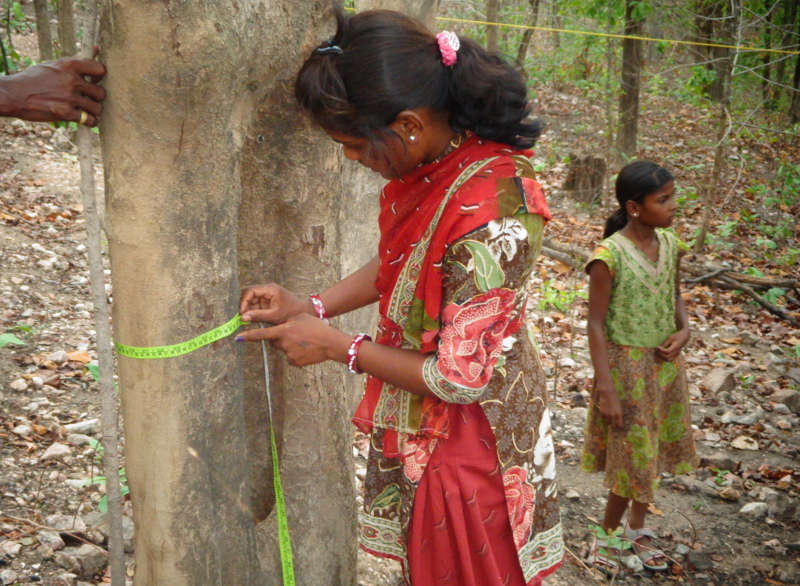Cessons la rhétorique : il est temps que l’argent soit réorienté vers une approche écosystémique sensible au genre afin d’enrayer la perte de biodiversité

Publié, à l’origine, dans ECOonline en septembre 2020.
par Souparna Lahiri, Coalition mondiale des forêts
Le Sommet des Nations-Unies sur la biodiversité se déroule alors que l’on comptabilise presque 30 millions de personnes infestées par le virus de la COVID-19 et un nombre de morts atteignant pratiquement le million. L’Organisation internationale du travail signale la perte de plus de 400 millions d’emplois à temps plein causant des impacts désastreux, particulièrement chez les femmes. [1]
Continuez à lire en anglais…
All the leading 23 economies have gone into severe recession and GDP contraction. UNEP has recently released a scientific assessment [2] which states that “Pandemics such as the COVID-19 outbreak are a predictable and predicted outcome of how people source and grow food, trade and consume animals, and alter environments.” The assessment further links biodiversity loss and the emergence of zoonotic diseases to 1) increasing human demand for animal protein; 2) unsustainable agricultural intensification; 3) increased use and exploitation of wildlife; 4) unsustainable utilization of natural resources accelerated by urbanization, land use change and extractive industries; 5) increased travel and transportation; 6) changes in food supply; and 7) climate change.
On all these counts, the UN, the CBD and the Parties have failed to address these drivers. The Global Biodiversity Outlook 5, released on September 15, strongly outlines the failure to achieve the Aichi Targets. But, there is no attempt to assess and learn from these colossal failures after spending millions of dollars of public money on biodiversity conservation. The main reason is that billions of dollars continue to be invested, directly or through subsidies or other incentives, in projects and sectors that are harmful to biodiversity.
Against this backdrop, the UNSG led Biodiversity Summit will be rendered rudderless if it turns into another talk shop of world leaders and corporate CEOs without addressing the immediate actions needed to halt biodiversity loss and extracting ambitious and science-based targets and commitments. Any conversation on biodiversity has to be based on scientific feasibility rather than political or economic feasibility. Any approach towards protection and conservation of biodiversity should be based on an ecosystems approach, and be gender-responsive, while recognising the territorial and land tenure rights of Indigenous Peoples, Local Communities and women.
The world leaders gathering at the UN Biodiversity Summit should ensure a 100% divestment from activities that cause ecosystem destruction and lead to perverse incentives towards biodiversity destruction and loss. Redirecting perverse incentives away from sectors like fossil fuel, agri-business, industrial livestock, tourism and aviation will result in much needed public investment to halt biodiversity loss and forest destruction through supporting genuinely transformative action and gender-responsive community conservation. Conflict of interest triggered by the private sector and corporate engagement in biodiversity conservation must be addressed.
There is no more time for political rhetoric and corporate greenwashing. A pathway towards ‘Harmony with Nature 2050’ means immediate and urgent, concerted, coherent and integrated global action enforced with strong commitments and obligations from Parties and other UN agencies to protect nature, biodiversity and forests.
[1] ILO (2020): ILO Monitor: Covid-19 and the world of work. Fifth edition, Geneva, https://www.ilo.org/wcmsp5/groups/public/@dgreports/@dcomm/documents/briefingnote/wcms_749399.pdf
[2] UNEP (2020): Preventing The Next Pandemic: Zoonotic diseases and how to break the chain of transmission, Nairobi, Kenya, https://wedocs.unep.org/bitstream/handle/20.500.11822/32316/ZP.pdf?sequence=1&isAllowed=y










